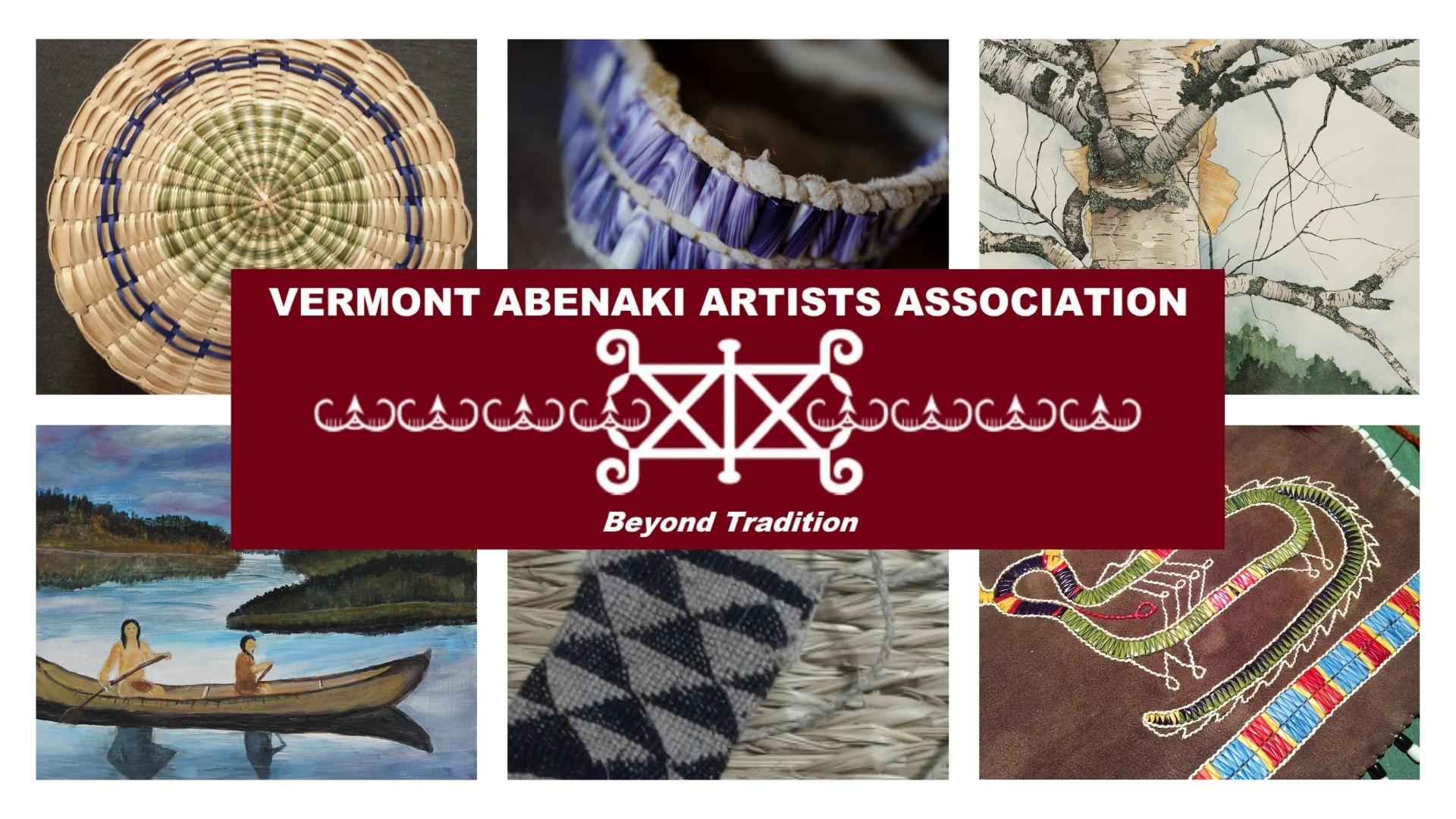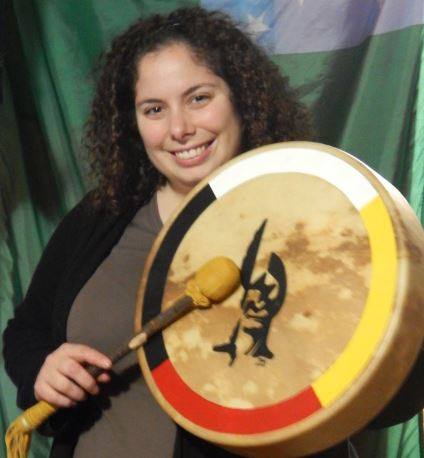In spring 2021, Vera Longtoe Sheehan (Elnu Abenaki) met with the students of “Native Presence and Performance: Reclaiming the Indigenous Narrative,” a first-year seminar offered by Middlebury College. After the meeting, Longtoe Sheehan recommended the students interview and write about VAAA affiliated artists. This blog post is one of a series that were created for that project, respectfully submitted by a student who self-identifies as non-Native.
Due to the length of this narrative, it will be introduced in two parts over a period of two weeks. This is part one.
Annabelle Wyman 24.5 – Middlebury College
Native Presence and Performance – 1 June 2021
Melody Mackin is a wonderful finger weaver, diligent activist, ardent educator, and devoted member of the Elnu Abenaki Tribe. In March of 2021, I had the privilege of speaking with her about this work and what she believes are the important aspects of Abenaki culture and history. Melody was taught to weave by two of her community members, Linda Longtoe Sheehan and Rose Hartwell, both of whom provided her with information on different facets of weaving. She explains that Linda taught her about the value of deliberate, slow, and methodical work while Rose taught her the intricacies of the craft and helped Melody to develop her own style of finger weaving. In the Abenaki community, finger weaving is deeply interwoven with the personality of the artist. The artist who creates the project incorporates their own techniques and methods to the process that bring their own style to the piece. Weaving has not changed much over the thousands of years it has been in existence, and members of the Abenaki community continue the tradition by using the same patterns, techniques, and materials as their ancestors to create a nearly identical product. However, the projects that are completed today are often very different than the ones of the past. Many products that were originally needed are not necessary today. Instead of ceremonial sashes, modern weavers have created pieces such as cell phone cases; beautifully connecting modern needs with traditional practices.
When Melody first began learning, there were only a limited number of finger weavers left in the community. She used her new skills to teach others in her family and the community, which then helped the number of weavers to multiply. She also took the time to teach non-native people from outside of her community in schools and at gatherings (most notably the Affirming Traditions Conference) in an effort to raise awareness about indigenous art forms. As Melody began to teach weaving to other members of her community, she came to a realization: her students were creating amazing products their first or second time weaving. She explains that her ancestors showed her that she was meant to be a teacher and should use her skills to educate others about the Abenaki community.
In her book Decolonizing Methodologies, Linda Tuhiwai Smith introduces twenty-five indigenous projects that serve to help Native communities in their attempts to conduct research and renew their tribal identities and culture. She explains that Protecting is a project used to ensure the continuation of oral and cultural tradition. Melody exemplifies this project by using her knowledge and passion for teaching to share her skills with her community and thus protect the art of finger weaving from extinction. As she began to explore her passion for teaching further, Melody worked at Johnson State College where she taught Abenaki history, culture, and spirituality, and Native American history and culture. After Johnson State College, she taught a class called

